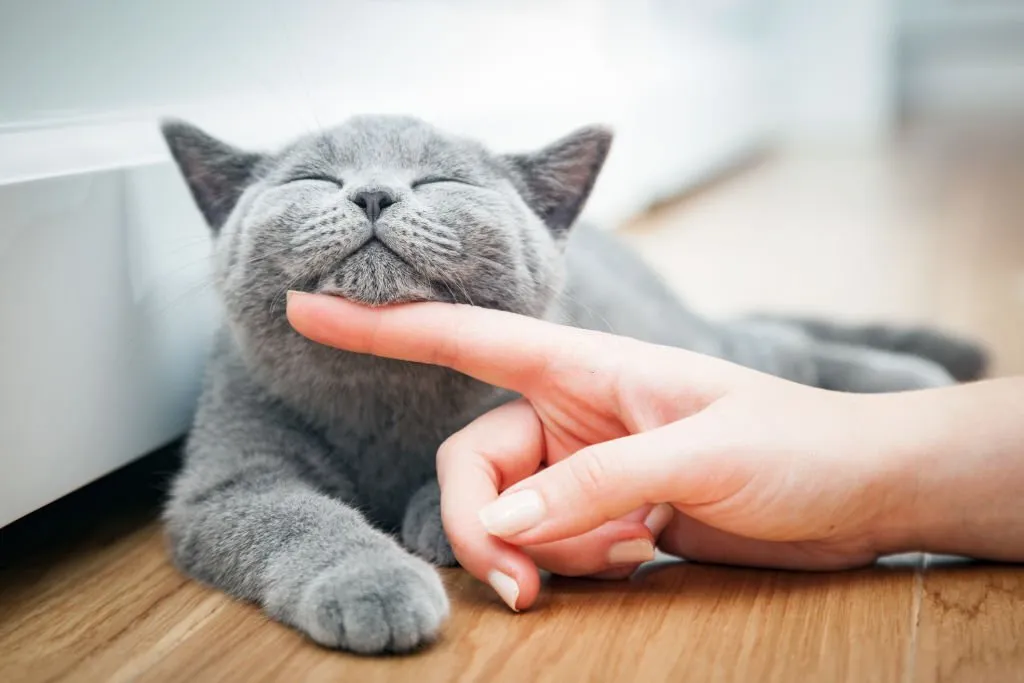Introduction
Cats are beloved pets that bring joy and companionship to millions of people around the world. As cat owners, it’s important to know our feline friends’ age to provide them with the best possible care. In this post, we’ll discuss how to determine your cat’s age, the physical and behavioral signs of aging in cats, and how to care for senior cats.

How to Determine Your Cat’s Age
Knowing your cat’s age is essential for providing them with the right care. If you don’t know your cat’s age, there are a few ways to estimate it. One way is to look at their teeth. Kittens have baby teeth that fall out around three to four months of age, and adult teeth grow in around six months. By the time a cat is one year old, their teeth are fully grown. Another way to estimate your cat’s age is to look at their eyes. Young cats have bright, clear eyes, while older cats may have cloudy or discolored eyes.
Physical and behavioral signs can also give you an idea of your cat’s age. Kittens are playful and energetic, while older cats may sleep more and be less active. Older cats may also have a thinner coat, and their fur may be grayer or have more white hairs. If you’re still unsure of your cat’s age, your veterinarian can help you determine it.
Understanding the Aging Process in Cats
Cats age differently than humans, and it’s important to understand the stages of a cat’s life. Kittens are considered to be under one year old, while adult cats are between one and seven years old. Senior cats are between seven and ten years old, and cats over ten years old are considered geriatric. As cats age, their bodies change, and they may develop health issues such as arthritis, dental problems, and kidney disease.
Physical Signs of Aging in Cats
As cats age, they may experience physical changes such as changes in coat color and texture, weight loss, and decreased mobility. Older cats may also develop lumps and bumps under their skin, which can be a sign of cancer. It’s important to monitor your cat’s physical health and take them to the vet if you notice any changes.
Dental Health and Age in Cats
Dental health is an important indicator of a cat’s age. As cats age, they may develop dental problems such as gum disease and tooth decay. It’s important to care for your cat’s teeth by brushing them regularly and providing them with dental treats and toys. Your veterinarian can also perform dental cleanings and checkups to ensure your cat’s teeth are healthy.
Behavioral Changes in Aging Cats
Behavioral changes can occur in cats as they age. Older cats may sleep more, be less active, and have changes in appetite. They may also become more vocal or develop litter box problems. It’s important to monitor your cat’s behavior and take them to the vet if you notice any changes.
Medical Tests to Determine Your Cat’s Age
Medical tests such as blood work and X-rays can be used to determine your cat’s age. Blood work can reveal changes in organ function, while X-rays can show signs of arthritis and other age-related conditions. Your veterinarian can perform these tests and provide you with information about your cat’s age and health.
Comparing Your Cat’s Age to Human Years
Comparing your cat’s age to human years can help you understand their life stage. Cats age more quickly than humans, and a one-year-old cat is equivalent to a 15-year-old human. A ten-year-old cat is equivalent to a 56-year-old human, and a 15-year-old cat is equivalent to a 76-year-old human.
Factors That Affect a Cat’s Age
Several factors can affect a cat’s lifespan, including breed, genetics, and lifestyle. Some breeds, such as Siamese and Burmese cats, may live longer than others. Genetics can also play a role in a cat’s lifespan, and cats with certain health conditions may have a shorter lifespan. Lifestyle factors such as diet, exercise, and stress can also affect a cat’s lifespan.
Tips for Caring for Senior Cats
Caring for senior cats requires special attention. Adjusting their diet to meet their changing nutritional needs, providing comfortable bedding, and scheduling regular vet visits are all important steps in caring for senior cats. It’s also important to monitor their health and take them to the vet if you notice any changes in behavior or physical health.
Conclusion
Knowing your cat’s age is essential for providing them with the best possible care. By understanding the physical and behavioral signs of aging in cats, you can help your feline friend live a longer, healthier life. By following the tips in this post, you can provide your senior cat with the care they need to thrive.
